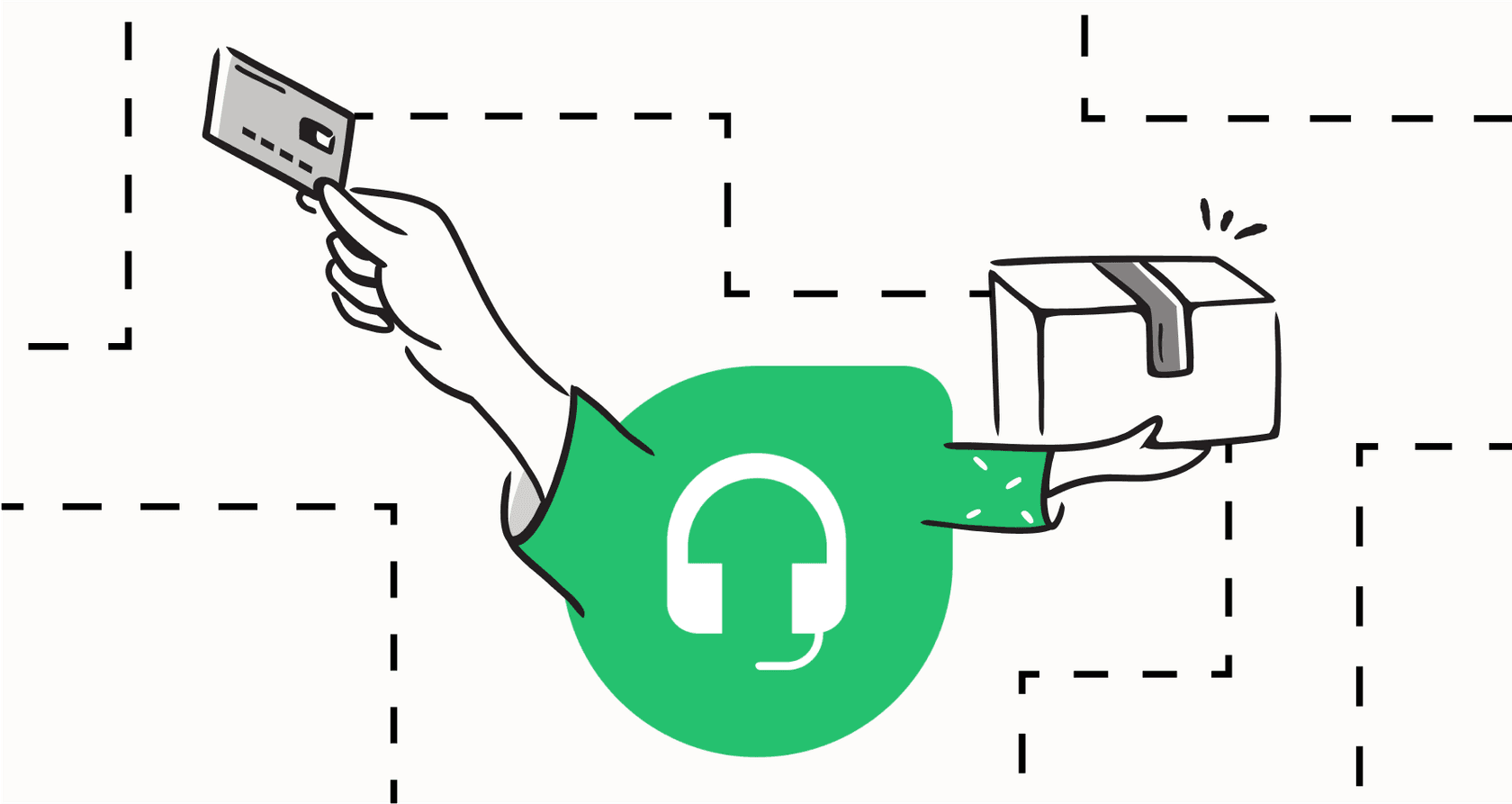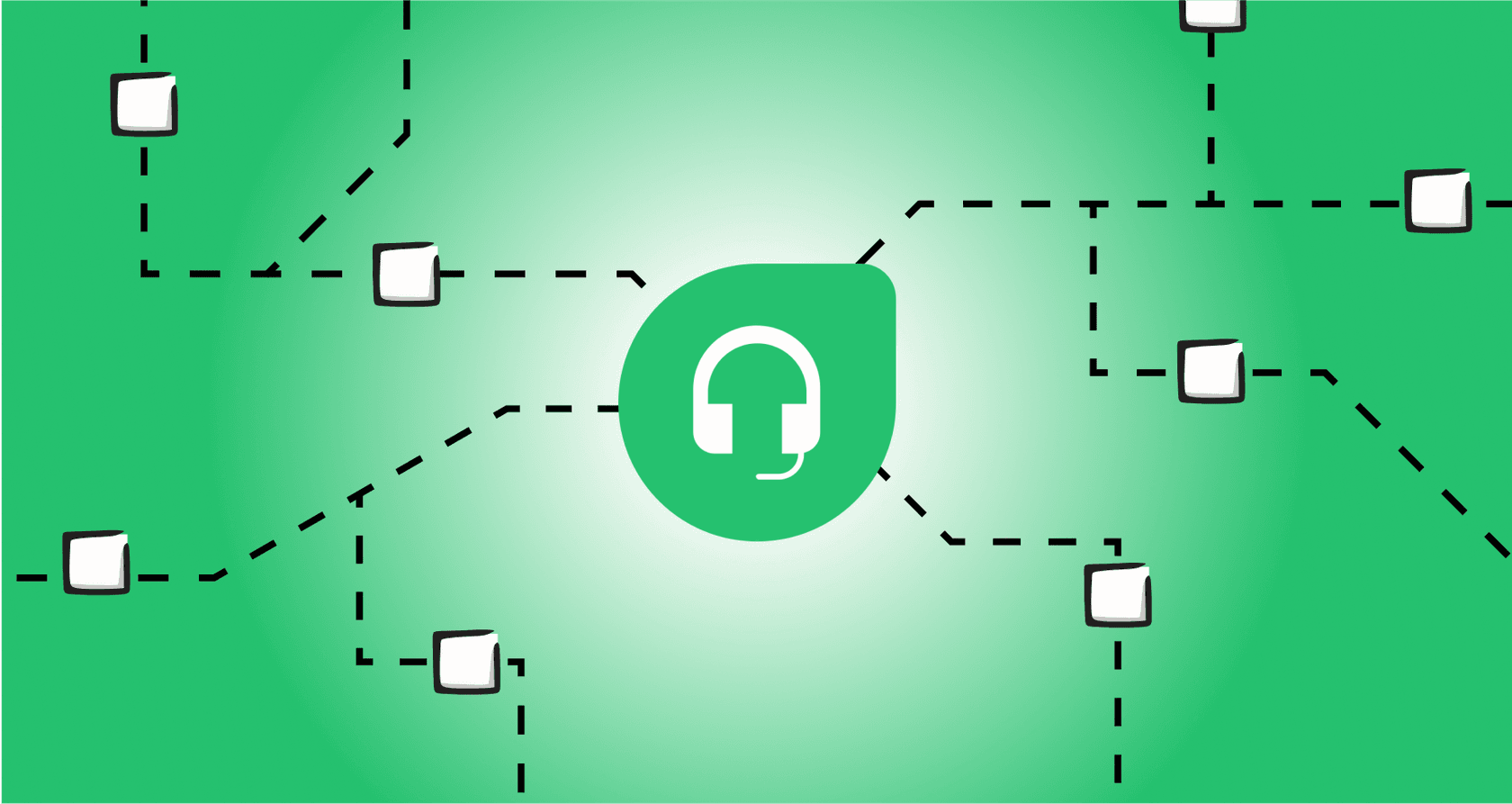Making sense of Freshdesk auto assign tickets

Kenneth Pangan
Last edited January 16, 2026

If you've ever managed a support team, you know the feeling. The ticket queue is lighting up, and one person is stuck playing dispatcher, trying to figure out who gets what. It’s slow, often inaccurate, and a perfect recipe for stressed-out customers and an even more stressed-out team. We've all seen a simple request sit for hours just because it landed in the wrong person's lap.
While Freshdesk has excellent built-in automation to help with this, teams can further enhance these systems as their needs become more complex and their volume grows. This guide will walk you through how Freshdesk's auto-assignment works. We’ll look at the main methods, point out how to optimize them for your team, and show you how a modern AI layer can turn ticket management from a daily grind into a smooth, efficient process.
What does Freshdesk auto assign tickets do?
Freshdesk auto assign tickets is a feature that automatically sends incoming support requests to the right agent or group. The whole point is to stop managers from having to manually read and forward every single ticket that comes in. Think of it as the first line of defense against a chaotic, unassigned queue.
The benefits are pretty straightforward:
- It gives your team leads their time back: Instead of just routing tickets, they can focus on coaching agents or improving workflows.
- You can answer customers faster: Tickets go straight to an available agent, which is a huge step toward cutting down that first response time.
- It helps spread the work around: By distributing tickets evenly, you can help prevent individual agents from getting buried in work and burning out.
Ultimately, the goal is to get the right ticket to the right person, fast. Freshdesk gives you three main ways to do this: round-robin, load-balanced, and skill-based assignment.
The three built-in methods for Freshdesk auto assign tickets
Freshdesk offers a few built-in options to automate how tickets get distributed. Each one has a different goal, whether it’s making sure work is shared fairly or getting a technical question to a technical expert. Let's break down how each one works.
Round-robin assignment for Freshdesk auto assign tickets: Keeping things equal
This is the simplest method of the bunch. It hands out tickets to online agents one by one, like dealing a deck of cards. If you have Agent Sarah, Agent Ben, and Agent Chloe, the first ticket goes to Sarah, the second to Ben, the third to Chloe, and the fourth ticket goes right back to Sarah to start the cycle over.
This works well for teams where everyone has more or less the same skill set and handles similar types of questions. It’s all about fairness and making sure no one is cherry-picking the easy tickets.
While this is a fair approach, it primarily focuses on volume distribution rather than specific agent capacity or individual ticket complexity. This means that, occasionally, a complex technical issue might go to a generalist agent simply because it was their turn in line.
Load-balanced assignment for Freshdesk auto assign tickets: Managing agent workload
This method is a bit more aware of agent workload. It sends new tickets to whichever agent has the fewest open tickets at that moment. The focus here is to keep everyone’s active queue manageable and prevent any single person from getting overwhelmed.
It's a solid choice for busy teams where the main goal is to respond as quickly as possible. When things get hectic, it sends new requests to the people who are most likely to be free, which can be a lifesaver during a sudden rush.
One consideration for this method is that it measures workload by ticket count, which is ideal for teams with standardized request types. For teams where ticket difficulty varies wildly, an agent might be seen as "free" because they have few tickets, even if those tickets are highly complex and time-consuming.
Skill-based assignment for Freshdesk auto assign tickets: Sending tickets to experts
This method lets you create "skills" (like ‘Spanish,’ ‘Billing,’ or ‘API Support’) and assign them to the agents who have them. When a ticket comes in that needs a certain skill, Freshdesk routes it to an available agent who has it.
This is pretty much essential for any team with specialists. You wouldn't want a billing question going to your top technical engineer, and skill-based routing is designed to prevent that.
This approach is highly effective for specialized teams, though it does involve some periodic manual updates as agent skills and roles evolve. It is most effective when tickets fit neatly into predefined categories that match your established skill lists.
| Feature | Primary goal | Best for | Key consideration |
|---|---|---|---|
| Round-Robin | Equal ticket distribution | Teams with similar skills | Focused on volume distribution |
| Load-Balanced | Fastest possible assignment | High-volume support queues | Focuses on ticket count |
| Skill-Based | Accurate routing to experts | Specialized teams | Requires manual setup and regular updates |
Considerations for scaling Freshdesk auto assign tickets
While Freshdesk's built-in tools provide a powerful foundation using reliable fixed "if this, then that" logic, teams with increasingly complex customer conversations can supplement these rules to ensure even greater precision.
Context considerations for Freshdesk auto assign tickets
Rule-based systems work by looking for specific elements, like keywords in a subject line or a value in a dropdown field. This is a robust way to categorize standard requests and ensure they reach the correct department.
For even more nuanced routing, adding an extra layer of context can be beneficial. For example, a ticket with the word "refund" might be a simple policy question or a high-priority concern from a long-term customer. While standard rules provide a great start, a more context-aware approach can help distinguish between these situations and ensure high-stakes issues get the specialized attention they need right away.
Maintenance considerations for Freshdesk auto assign tickets
As your business grows, you'll naturally update products, launch features, and encounter new customer trends. During these times, it’s helpful to refine your automation rules and skill lists to keep everything running smoothly.
This structure is a valuable way to maintain control over your workflows. As you scale, you can build on these rules to manage your expanding team, ensuring your routing remains precise even as your product lineup becomes more comprehensive.
How to further improve Freshdesk auto assign tickets over time
Standard rules offer consistent reliability and a solid framework for any support team. As you look to the future, you can build on this by incorporating tools that adapt to your team's changing needs.
By supplementing your rules with systems that can identify new patterns in your ticket data, you can move toward an even more proactive model. This helps you stay ahead of support trends and ensures your routing logic continues to get more effective as your team grows.
Enhancing Freshdesk auto assign tickets with AI
This is where an intelligent automation layer comes in. Instead of switching platforms, tools like eesel AI work seamlessly within Freshdesk. They add a layer of adaptive, context-aware AI to complement your existing rules, helping you work even more efficiently.
How AI complements Freshdesk auto assign tickets
An AI-powered approach builds on your existing setup by adding intelligence that works alongside your current rules.
-
It understands the full context: eesel AI’s AI Triage goes beyond keywords to understand the full content of every ticket. It can detect customer sentiment and intent, identifying high-priority issues even if they haven't been manually flagged. This ensures that every customer gets exactly the right level of attention.
-
It learns from your past tickets: The platform analyzes your team’s history of successfully resolved tickets. It automatically identifies which agents or teams are the best fit for specific problems based on historical success. If an agent consistently resolves certain types of technical errors effectively, the system can help route similar tickets their way, creating a dynamic version of skill-based routing.
-
You can roll it out with confidence: eesel AI integrates with Freshdesk in just one click, making it easy to add to your workflow. You can run simulations on your past tickets to see exactly how the AI would have handled them before turning it on for live customers. This ensures you can automate with total confidence in the system's accuracy.
This video from Freshdesk explains the different types of automation rules you can build to streamline your customer support process.
Moving from fixed rules to smart Freshdesk auto assign tickets
Freshdesk's native auto-assign features are valuable tools that bring order to your support queue and help you move beyond manual ticket assignment. For many teams, they provide an excellent and robust foundation.
As teams scale, they can further enhance the efficiency of these built-in systems by adding intelligent automation. By incorporating an AI layer that learns from your own team's expertise, you can make sure every ticket gets to the right person with incredible speed and accuracy. This lets your agents focus on doing what they do best: solving problems and providing top-tier service to your customers.
Get started with AI-powered Freshdesk auto assign tickets
Ready to build on your existing setup and let AI help manage your ticket routing with even more intelligence? Sign up for a free trial of eesel AI and see how you can upgrade your Freshdesk workflow in just a few minutes.
Frequently asked questions
For a small, generalist team, the round-robin method is often the best starting point because it ensures work is distributed evenly among all available agents. If you notice agents getting overloaded, the load-balanced method is a good next step.
This is a characteristic of rule-based systems; the junior agent can recognize the situation and manually reassign it to ensure the customer is helped by the right expert. This is why AI-driven context analysis is a powerful way to optimize these workflows from the start.
With standard rule-based methods, it is helpful to periodically update your rules and skill lists as your products, policies, or team structure evolves. This ensures your routing remains precise, and you can further streamline this process with AI-based systems that learn and adapt automatically.
Absolutely, and that's the ideal approach. Tools like eesel AI plug directly into your existing Freshdesk setup, adding a layer of intelligence to your routing without requiring you to replace the tools your team already uses.
It helps by distributing the number of tickets, keeping queues manageable. For teams handling very complex issues, adding a system that understands the effort needed for each ticket can provide even more effective workload balancing.
Share this post

Article by
Kenneth Pangan
Writer and marketer for over ten years, Kenneth Pangan splits his time between history, politics, and art with plenty of interruptions from his dogs demanding attention.





